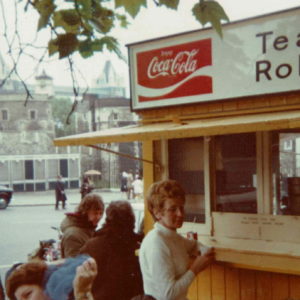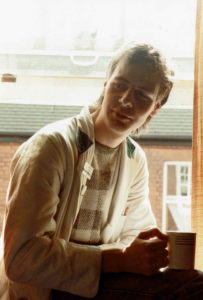The youngest of three, Mark was born in the East End of London to the ringing of the bells of St Mary-le-Bow, making him a true cockney. His father was a policeman in the Lime Street traffic division, and his mother was personal assistant to the director of a large building supplies company.
Soon after his father retired, they relocated to the seaside town of Southend, where Mark began attending school. Southend was part of an experiment using the Initial Teaching Alphabet (I.T.A), a variant of the Latin alphabet developed by Sir James Pitman. Unfortunately, it was later found that some children cannot effectively transfer their skills in I.T.A. to standard English orthography. In addition to having to deal with this challenge, Mark was found to be affected by mild dyslexia, further compounded by the 43 symbols alphabet used in I.T.A. While I.T.A was discontinued relatively quickly, many people remain hindered by the government experiment with I.T.A.
His father had a love for animals so he tried to run a smallholding during their time in Southend. In contrast, his mother had no interest in farming life and must have been relieved when they relocated back to the East End with the eight year old Mark. They returned to take over the family business from Mark’s mother’s family, becoming street traders selling refreshments outside the Tower of London. Incidentally, this was where his parents had met for the first time, when his mother was working at the Coffee Stall and his father as a local beat Bobby.

The family led the business to great success, and they proudly continued a family tradition that was 110 years old. A tradition that began with his mother’s great Grandfather trading from a wheelbarrow, providing tea to the barrow boys at Billingsgate Market. As the market expanded, they moved to the end of Lower Thames Street and found themselves situated outside the gates to the famous Tower of London. Mark worked on the stall at weekends and holidays, and continued to do so long after his father’s death, working alongside his older brother to whom the family licence fell after their father passed away.
When he left school, his mother encouraged him to join the Post Office as it was a route to a secure job and pension. The work included taking government documents across London handcuffed to a briefcase, as well as regular post and mail services. But while this was exciting for Mark as a young person, it didn’t feel like the career path he wished to follow. Despite having to deal with the emotional turmoil that came with losing his father, he was ultimately able to find a job that he both excelled at and enjoyed. Mark began an apprenticeship as an operating theatre technician at Kingston hospital and, after passing his exams, he also became a health and safety representative for the health service union COHSE.

Unfortunately, as time passed the continuous restructuring of the health service caused Mark to become disillusioned with the role. As a result, he increasingly focussed his interest on computing and, under the influence of his brother, took the radical step to re-train as a computer technician. Serving specialised printers, he was lucky enough to spend time in America and then returned to support the London stock exchange and many prestigious banks. From this point, his career developed rapidly and he worked with many of the state-of-the-art computing systems of the time, from IBM’s 3X to its 3090 systems. He soon developed the expertise and rapidly progressed to become an engineering manager
The rest, as they say, is history.